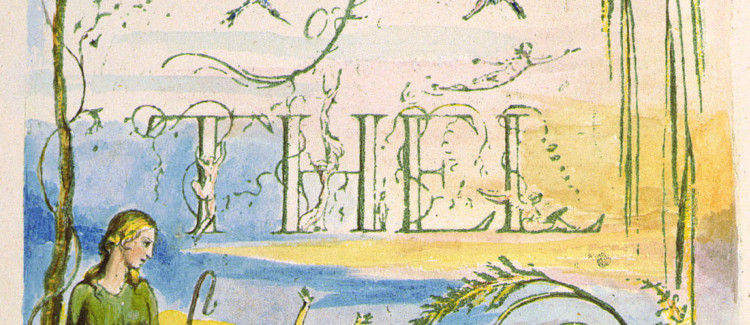The Book of Thel – Zum Wassermann

Thel, however, isolates herself and complains about her life in innocence. She engages in conversation with the lilies-of-the-valley, the cloud and with Ms. Clay, the mother of the worm. These symbolic creatures sing of the wealth of their spiritual and physical life. Their life fulfillment and happiness are found by giving themselves over to others. They live by the creed: “Everything that lives, does not only live for itself.’
Ms. Clay invites Thel to the sublunar, the world of experience. Thel enters through the northern gate of the mortals, similar to Homer’s Odyssee. There, she hears voices from the graves moaning about the difficulties of life, about betrayal and unfulfilled desires, about restrictions and Death. With this picture of doom held before her, the surprised Thel flies as an equal back to her pastoral world of imagination.
Lucien Posman composed Thel’s quest for soprano and ensemble in 2001.
In 1984 Karel Goeyvaerts 'Zum Wassermann' in de aanloop naar zijn opera 'Aquarius'. Hierin schetst hij hoe de mensheid als collectief, doorheen verschillende stadia van ervaring, op weg gaat naar het tijdperk van de Waterman, waar nieuwe en evenwichtige intermenselijke verhoudingen tot stand komen. Centraal in deze droom is de harmonie die ontstaat wanneer elk individu precies die plaats in het maatschappelijk geheel inneemt die in overeenstemming is met de ontwikkeling van de persoonlijke mogelijkheden.
Programme & credits
Lucien Posman (°1952)
The Book of Thel (2001)
Karel Goeyvaerts (1923-1993)
Zum Wassermann (1984)
SPECTRA o.l.v. Filip Rathé
Emma Posman, soprano
Calendar
XXX
VIDEOSTREAM
Media

